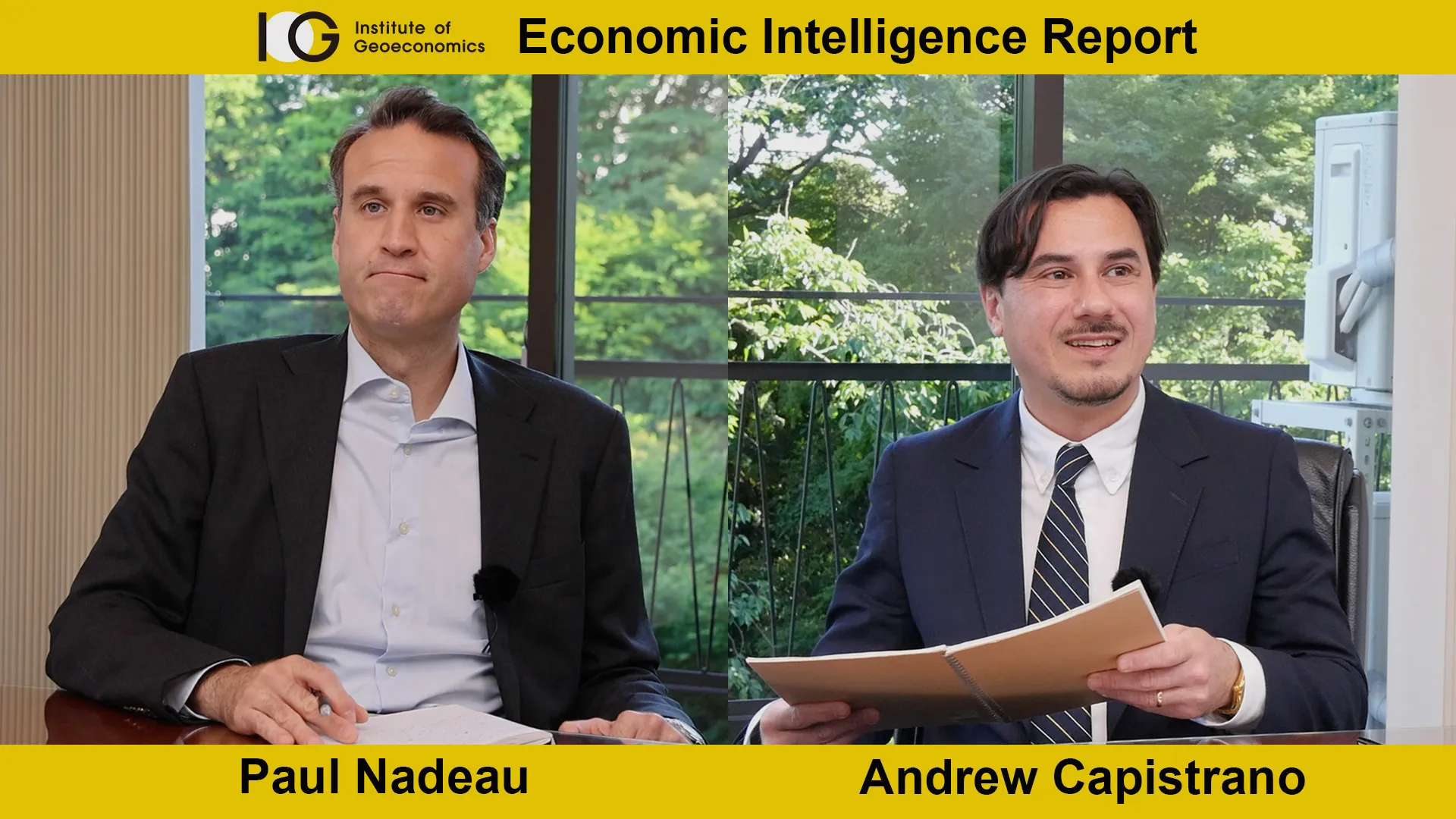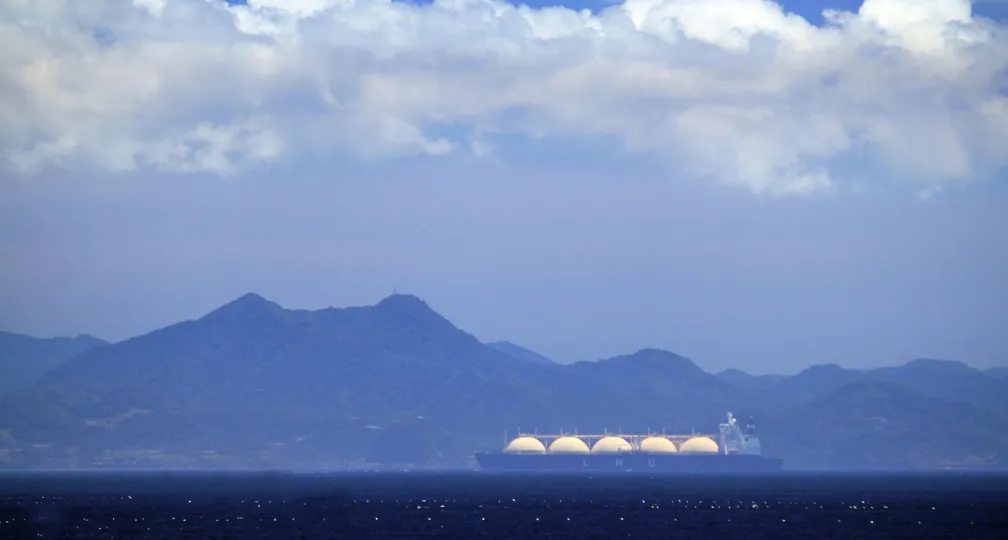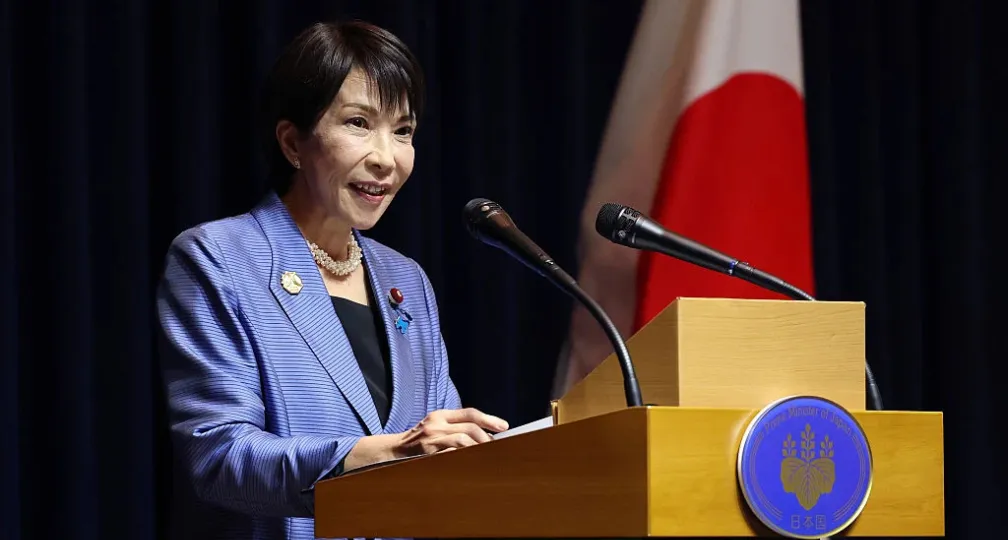IOG Economic Intelligence Report (Vol. 2 No. 11)

The latest regulatory developments on economic security & geoeconomics
Transatlantic Cooperation on Economic Coercion: The U.S.-EU Trade and Tech Council met on May 30 and 31 in Luleå, Sweden. In addition to agreements on AI, quantum, monitoring & information sharing regarding potential supply chain disruptions, and more, the two sides emphasized joint efforts to counter economic coercion and non-market practices. They specifically pointed towards China’s policies in the medical device field, such as closing its market to foreign competitors.
Tracking Steel & Aluminum Emissions: U.S. Trade Representative Katherine Tai is expected to ask the U.S. International Trade Commission to gather data on greenhouse gas emissions produced by the U.S.-based steel and aluminum industry, imports of both of which are now subject to tariffs. The draft report on emissions would be due in December 2024 and would be used to inform discussions with the European Union on a global agreement to reduce the carbon intensity and excess production of steel and aluminum.
Congressional Concern over Micron: Congressmen Michael McCaul (R-TX), chair of the House Committee on Foreign Affairs and Mike Gallagher (R-WI), chairman of the House Select Committee on the Chinese Communist Party” (R-WI) wrote a letter to Amb. Tai expressing concern about China’s “banning” critical information infrastructure operators from purchasing Micron products, describing it as an “arbitrary economic embargo”. The letter calls on the U.S. Commerce Department to use its authority under the Export Control Reform Act of 2018 to counter China’s “economic coercion” by placing ChangXin Memory Technologies on the “Entity List” of companies whose products require special licensing to purchase. The letter also called for the Commerce Department to “rally” Japan and South Korea to ensure that their firms do not replace the market share left available by the restrictions on Micron.
Closing the Deal with Taiwan: The Biden administration announced it had concluded an agreement on the first phase of its trade negotiations with Taiwan (called the “U.S.-Taiwan Initiative on 21st Century Trade”) covering trade facilitation and good regulatory practices in the coming weeks. The Biden administration argues that the agreement does not need to be submitted to Congress for approval, similar to its approach to IPEF, the critical minerals agreement with Japan, and more. Yet the House Ways & Means Committee, with jurisdiction over trade policy, announced legislation that would both approve the May deal and require congressional consultation and transparency on the other disciplines potentially covered under the agreement.
Welcome to DC: On June 2, U.S. Treasury Undersecretary for International Affairs Jay Shambaugh met with Xie Feng, China’s new ambassador to the United States. A statement from the U.S. Treasury Department said that both sides raised concerns but also “emphasized the importance of the two largest economies closely communicating on global macroeconomic and financial issues and working together on global challenges.”
Cracking Down on China-Made Airport Transit Vehicles: The House of Representatives’ Federal Aviation Authority (FAA) reauthorization bill would prohibit FAA funding from being used to purchase airport transit vehicles, such as parking buses and jet bridges, made by Chinese-owned companies that have “misappropriated” U.S. intellectual property or trade secrets.
Analysis: Squaring the Circle
The Biden administration wants to compete against China without confronting it. It wants to deepen economic engagement with Asia without resorting to “traditional” trade agreements. It wants the World Trade Organization to be the foundation of the global trading system without supporting its dispute settlement mechanisms. In other words, the Biden administration seems to have made a habit of inconsistency, pursuing seemingly contrary goals while not offering many suggestions about how those contradictions are going to be reconciled.
In some past administrations, contradictions like these might have been the result of bureaucratic in-fighting, with different principals and different agencies pursuing different goals and no one at the top of the hierarchy able to bring order. This was a feature of the Trump administration that was well-known because the in-fighting spilled over into the media so often. It’s much harder to see something similar going on with the Biden administration – while there are some reports of differences of opinion, like between the Treasury Department and Commerce Department over certain specific features, there’s nothing to the scale of the Trump administration and demonstrations of consistency are frequent, like the speeches from Treasury Secretary Janet Yellen on China and National Security Advisor Jake Sullivan on economic security.
A better explanation is that the Biden administration is being pulled in too many directions and without the political space to do much about it. Wiping the fog from the window reveals a certain coherence in the Biden administration’s outlook and approach. They have concerns about the direction of China’s military posture and the role of technology in advancing that, but are concerned that elevating competition into a Cold War-like struggle that would create more dangers than it would solve. They seem genuine about pursuing economic engagement with the region but have internalized the perspective of trade skeptics about the role of liberalization in U.S. employment and may also be skeptical of achieving anything through Congress, as would be required in “traditional” trade agreements. It’s a narrow line to walk, and one that’s much harder in a polarized environment where competition is zero-sum and the expectations from partners can be vast. While it’s understandable for any administration to make the most of what’s available to it, the mark of a skillful administration is one that can expand its own political space and create options that weren’t there before.
The problem is that everyone else, both partners and competitors, need to be able to understand that a narrow path is the intention, never mind understanding the nuances. That takes consistent and frequent communication, but insisting on nuance also increases the odds of misunderstanding. Even the advantage of the White House “bully pulpit”, from President Teddy Roosevelt’s line that the presidency is an ideal (or “bully” to use the parlance of the early twentieth century) platform to communicate the president’s message, which Yellen, Sullivan, and others have used to good effect, hasn’t always provided the necessary clarity on what sometimes seem like contrary goals.
Nor is the Biden administration the only voice in Washington, DC, or even the only voice in policymaking. The proposed legislation to remove China’s Permanent Normalized Trade Relations (PNTR) status is a case in point. Its passage would be a clear “killshot”, as a U.S. trade lawyer described it, in the U.S.-China relationship at a moment when the Biden administration is trying to prevent relations from overheating. At the same time, a veto on an issue that many from both parties see as responsible for devastating U.S. manufacturing would be politically uncomfortable, especially in an election year. While any such legislation would indeed be almost certainly vetoed if it even makes it so far as the president’s desk, it’s the sort of situation that would best be solved by a phone call to House Majority Leader Kevin McCarthy to ask him to keep his membership in line on this issue – and hoping that McCarthy agrees.
Trying to achieve clarity regarding U.S. goals is particularly challenging in an age of Twitter and media constantly looking for content and plenty in Washington willing to provide it.
Ultimately the Biden administration has set a difficult path for itself, even if it’s the best it might be able to do given the circumstances The best way to optimize its situation, at least as far as the international stage is concerned, is to communicate clearly and consistently and offer a coherent message. Unfortunately, the Biden administration isn’t the only consequential voice in Washington. The bully pulpit isn’t what it used to be – and the risks of contradiction are greater.
Disclaimer: The views expressed in this IOG Economic Intelligence Report do not necessarily reflect those of the API, the Institute of Geoeconomics (IOG) or any other organizations to which the author belongs.
API/IOG English Newsletter
Edited by Paul Nadeau, the newsletter will monthly keep up to date on geoeconomic agenda, IOG Intelligencce report, geoeconomics briefings, IOG geoeconomic insights, new publications, events, research activities, media coverage, and more.


Visiting Research Fellow
Paul Nadeau is an adjunct assistant professor at Temple University's Japan campus, co-founder & editor of Tokyo Review, and an adjunct fellow with the Scholl Chair in International Business at the Center for Strategic and International Studies (CSIS). He was previously a private secretary with the Japanese Diet and as a member of the foreign affairs and trade staff of Senator Olympia Snowe. He holds a B.A. from the George Washington University, an M.A. in law and diplomacy from the Fletcher School at Tufts University, and a PhD from the University of Tokyo's Graduate School of Public Policy. His research focuses on the intersection of domestic and international politics, with specific focuses on political partisanship and international trade policy. His commentary has appeared on BBC News, New York Times, Nikkei Asian Review, Japan Times, and more.
View Profile-
 Japan’s Sea Lanes and U.S. LNG: Towards Diversification and Stabilization of the Maritime Transportation Routes2026.02.24
Japan’s Sea Lanes and U.S. LNG: Towards Diversification and Stabilization of the Maritime Transportation Routes2026.02.24 -
 Fed-Treasury Coordination as Economic Security Policy2026.02.13
Fed-Treasury Coordination as Economic Security Policy2026.02.13 -
 What Takaichi’s Snap Election Landslide Means for Japan’s Defense and Fiscal Policy2026.02.13
What Takaichi’s Snap Election Landslide Means for Japan’s Defense and Fiscal Policy2026.02.13 -
 Challenges for Japan During the U.S.-China ‘Truce’2026.02.12
Challenges for Japan During the U.S.-China ‘Truce’2026.02.12 -
 India and EU Sign Mother of All Deals2026.02.09
India and EU Sign Mother of All Deals2026.02.09
 Orbán in the Public Eye: Anti-Ukraine Argument for Delegitimising Brussels2026.02.04
Orbán in the Public Eye: Anti-Ukraine Argument for Delegitimising Brussels2026.02.04 Fed-Treasury Coordination as Economic Security Policy2026.02.13
Fed-Treasury Coordination as Economic Security Policy2026.02.13 When Is a Tariff Threat Not a Tariff Threat?2026.01.29
When Is a Tariff Threat Not a Tariff Threat?2026.01.29 Oil, Debt, and Dollars: The Geoeconomics of Venezuela2026.01.07
Oil, Debt, and Dollars: The Geoeconomics of Venezuela2026.01.07 India and EU Sign Mother of All Deals2026.02.09
India and EU Sign Mother of All Deals2026.02.09














